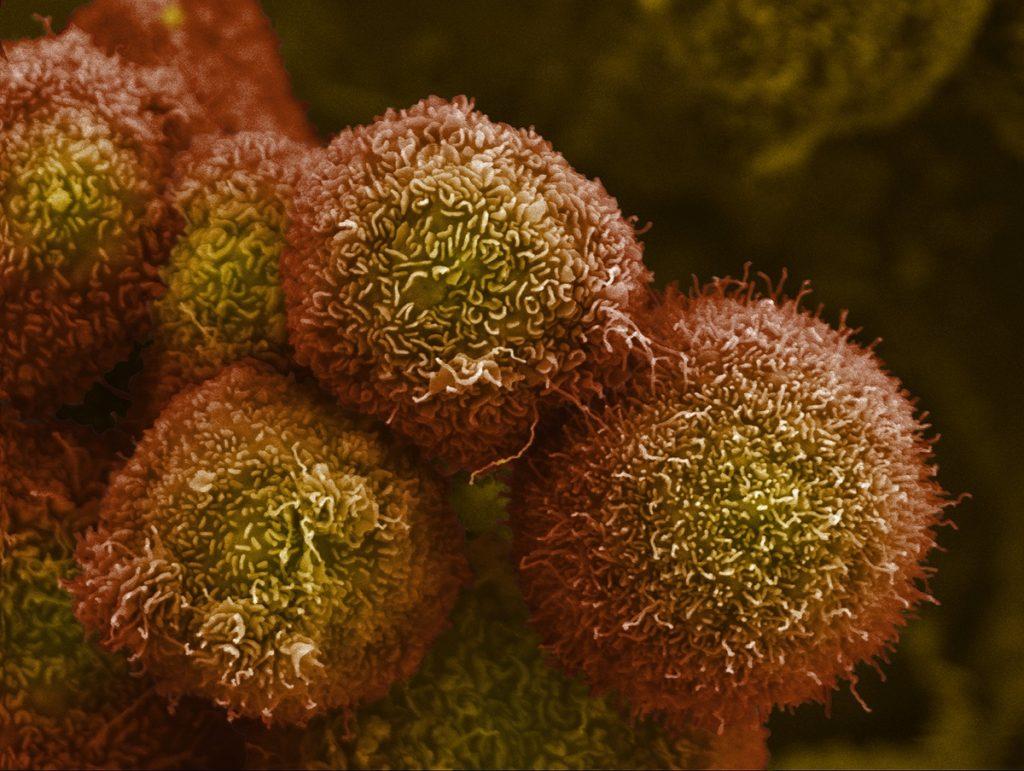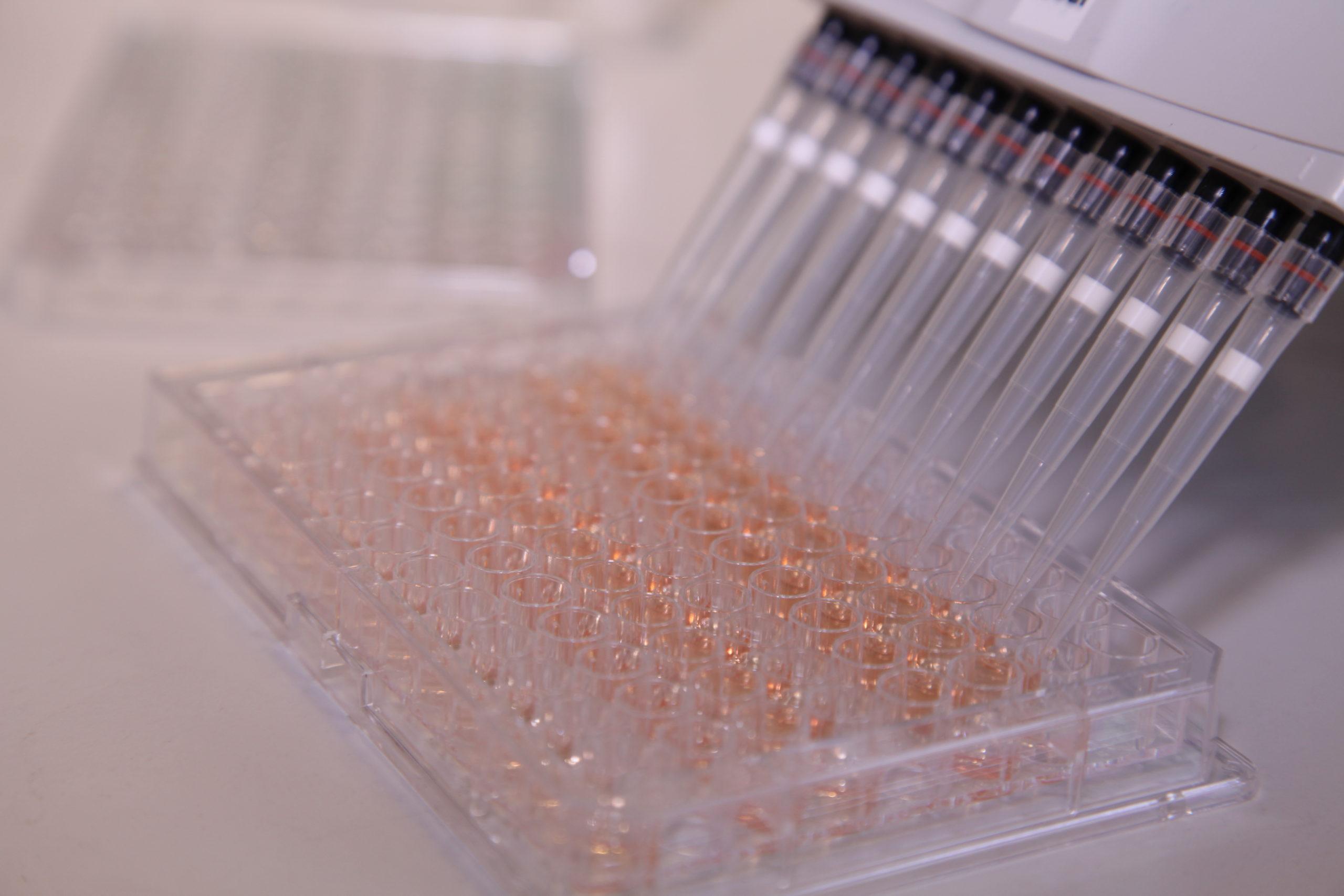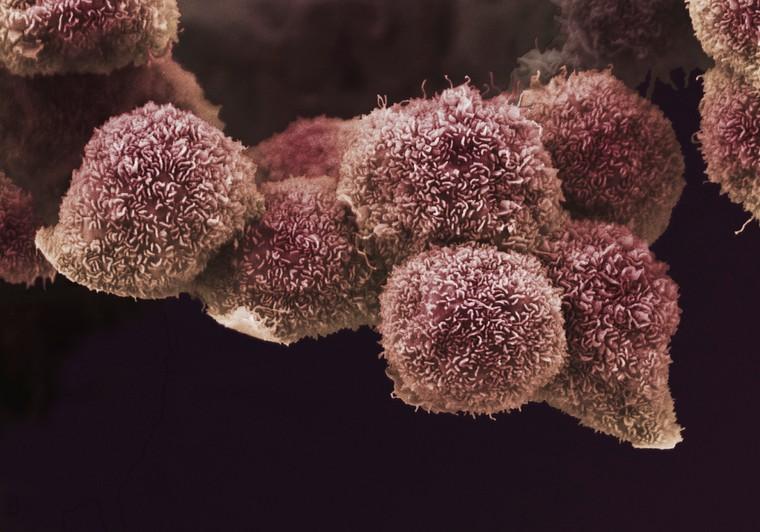Our pancreatic cancer research: Looking back over the last year
November is Pancreatic Cancer Awareness Month and today (19th November) is World Pancreatic Cancer Day. There are around 10,300 new pancreatic cancer cases diagnosed in the UK each year and although this accounts for only 3% of the total cancer cases, pancreatic cancer is the deadliest of the common cancers. It sadly claims the lives of approximately 9,200 people each year, and only around 7% of those diagnosed with pancreatic cancer survive their cancer for 5 years or more.1
Pancreatic cancer represents a core area of research focus at the Barts Cancer Institute (BCI), and our work spans from laboratory experiments to better understand the basic biology of pancreatic cancer, to direct translation into clinical trials. Our scientists are working to develop techniques to detect pancreatic cancer at its very earliest stages and map the altered molecular signatures in pancreatic cancer to identify new targets for therapy.
This World Pancreatic Cancer Day, we look back at some of our pancreatic cancer research from the last year.
Working towards a vaccine for pancreatic cancer
Although vaccines do exist for some cancers caused by known pathogens, such as the human papilloma virus in cervical cancer, vaccination against non-viral cancers has remained a challenge. Researchers from the BCI and Zhengzhou University conducted a proof-of-concept study for the creation of a vaccine for pancreatic cancer prevention.
Led by Professor Yaohe Wang, the team used a preclinical murine model to develop a personalised vaccine system. The vaccine was found to delay the onset of pancreatic cancer, doubling the survival time of mice who received the vaccine when compared with mice who did not receive the vaccine. Although at the early developmental stages, the research provides strong evidence that the creation of a vaccine against pancreatic cancer is possible.
The study was published last November in Clinical Cancer Research, a journal of the American Association for Cancer Research, and the research was funded by the Chinese Ministry of Science and Technology and Zhengzhou University. Read the full news story here.

Using the foot-and-mouth-disease virus to target pancreatic cancer
Researchers from the BCI have found a way to deliver a drug to pancreatic cancer cells by using a protein fragment from the foot-and-mouth-disease virus. The study, published earlier this year in Theranostics and funded by Pancreatic Cancer Research Fund, identified a protein fragment taken from the foot-and-mouth-disease virus that targets another protein, called avβ6, which is found at high levels on the surface of the majority of pancreatic cancer cells. Working jointly with Spirogen (now part of AstraZeneca) and ADC Therapeutics, the team used the peptide to carry a highly potent drug, called tesirine, specifically to pancreatic cancer cells. When mice with pancreatic cancer tumours were treated with the drug and peptide combination, the tumours were completely killed.
Professor John Marshall, who led the study, was interviewed on the BBC about this research. Read the full news story here.

Metal analysis of urine – a potential diagnostic tool for pancreatic cancer
Research from BCI, the University of Oxford and Columbia University revealed that the signature of metal ions present in urine samples is an accurate indicator of pancreatic ductal adenocarcinoma (PDAC), the most common type of pancreatic cancer. The research team discovered that PDAC patients had significantly lower levels of urinary calcium and magnesium and increased levels of copper and zinc, when compared to healthy controls. A combined analysis of these essential metals was shown to be an accurate indicator of biochemical changes related to PDAC. The discovery could signal the possibility of a new and completely non-invasive test for pancreatic cancer.
BCI's Professor Tatjana Crnogorac-Jurcevic was senior author on the study. The research was published in Metallomics and funded by Pancreatic Cancer Action. Read the full news story here.

Combination therapy with vitamin A
Results of a phase I clinical trial, led by Professor Hemant Kocher, found that a treatment combination involving the addition of ATRA (a form of vitamin A) to the current standard treatment regimen for pancreatic cancer is safe for patients. Previous laboratory research found that treating stellate cells within pancreatic tumours with ATRA restricted tumour growth. Stellate cells have an important role in normal tissue formation; however, they become corrupted in cancer and help to form an impenetrable barrier, known as the stroma, around the pancreatic tumour.
The STARPAC trial showed that the addition of ATRA to standard chemotherapy had no additional harmful effects in patients when compared with the standard chemotherapy alone, and also demonstrated that the combination does seem to modify the pancreatic cancer stroma in patients.
Following the encouraging results of this phase I trial, published in Nature Communications, a phase II clinical trial will be launched to determine whether the addition of ATRA to current standard chemotherapy can improve the treatment outcome in pancreatic cancer.
The trial was funded by the Medical Research Council with support from Celgene Corporation. Read the full news story to find out more.

Thank you to our funders for your continued support of our pancreatic cancer research.
1Cancer Research UK, Pancreatic cancer statistics. Accessed Nov 2020 https://www.cancerresearchuk.org/health-professional/cancer-statistics/statistics-by-cancer-type/pancreatic-cancer
Category: General News

No comments yet